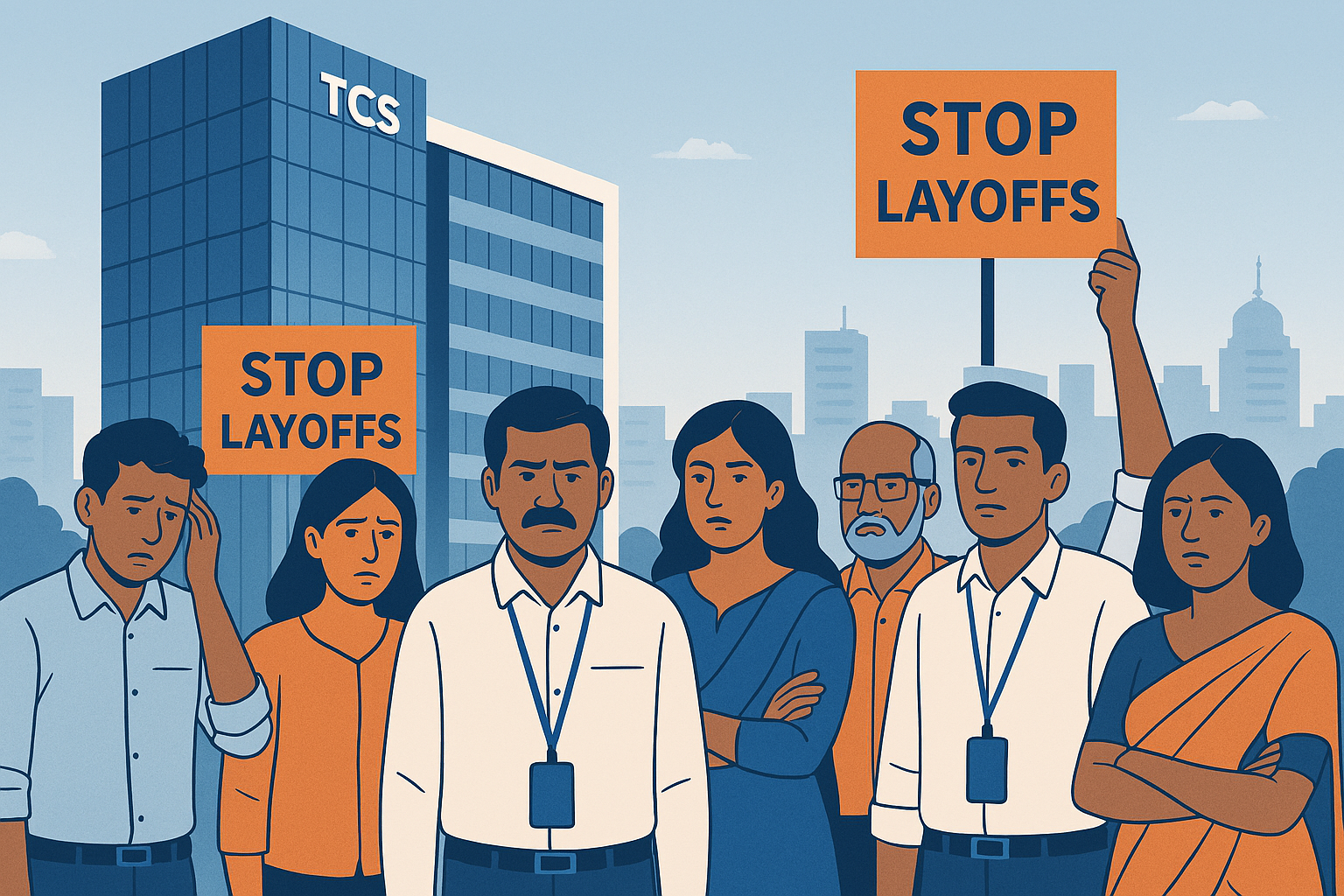Tata Consultancy Services (TCS), India’s largest IT services company, is facing a wave of criticism after reports of mass layoffs sparked protests in Bengaluru, Chennai, and Hyderabad. Employees, supported by IT unions, gathered outside company offices with placards reading “Stop Layoffs”, raising concerns about job security at a time when automation and AI are reshaping the industry.
But what really happened? And how has TCS responded to these allegations?
Why Are Employees Protesting?
Earlier this year, TCS announced a workforce reduction of around 12,000 employees—about 2% of its global strength of 6.13 lakh. The company called this a “strategic realignment” to focus on digital skills like AI, cloud, and data.
However, employee unions claim the real number is much higher—between 30,000 to 40,000. According to them, experienced staff are being pressured to resign, while freshers are hired at lower salaries to fill the gap.
Protesting employees argue that such forced resignations amount to “illegal retrenchment” and allege that TCS is prioritizing profits over people.
What TCS Has Said:
TCS strongly denied the allegations. In an official statement issued after the protests, the company clarified:
- Claims of 30,000+ layoffs are “incorrect and misleading.”
- The company is not replacing senior employees with juniors, but “reskilling and redeploying talent to align with business needs.”
- It emphasized that no employee has been asked to resign illegally.
A TCS spokesperson added:
“We continue to invest in upskilling our workforce and are committed to being a people-centric organization. Attrition and workforce optimization are natural parts of any large company’s operations.”
This statement has done little to calm protests, but it highlights the growing disconnect between how companies position layoffs versus how employees experience them.
The Bigger Picture: IT Jobs Under Pressure:
The TCS episode is not isolated. Across India’s IT sector, layoffs and restructuring have become common as automation, AI, and global economic uncertainty push companies to rethink operations.
Industry analysts estimate that nearly 500,000 IT jobs in India could be impacted in the next few years due to this digital shift. What’s striking is that even profitable firms like TCS (₹2.55 lakh crore revenue in FY25) are restructuring aggressively.
For employees, the message is clear: job security is no longer guaranteed, even in top IT companies.
What It Means for Job Seekers & IT Professionals:
While protests highlight the human cost of layoffs, professionals need to focus on what they can control. Here are five takeaways:
- Reskill Continuously – Focus on AI, cloud, cybersecurity, and data analytics.
- Be Prepared for Change – Even big names aren’t immune to restructuring.
- Know Your Rights – Understand layoff policies, severance packages, and labour laws.
- Stay Financially Secure – Build savings for at least 3–6 months of expenses.
- Expand Networks – Job searches are faster when you have strong professional connections.
Final Thoughts:
The protests at TCS highlight a deeper anxiety in India’s IT industry—one that goes beyond a single company. As the workforce shifts towards AI-driven roles, both employees and employers must find a middle ground where innovation doesn’t come at the cost of dignity and livelihood.
For job seekers, the lesson is not just about layoffs—it’s about staying future-ready.
Source: MSN – TCS Layoff Protests

